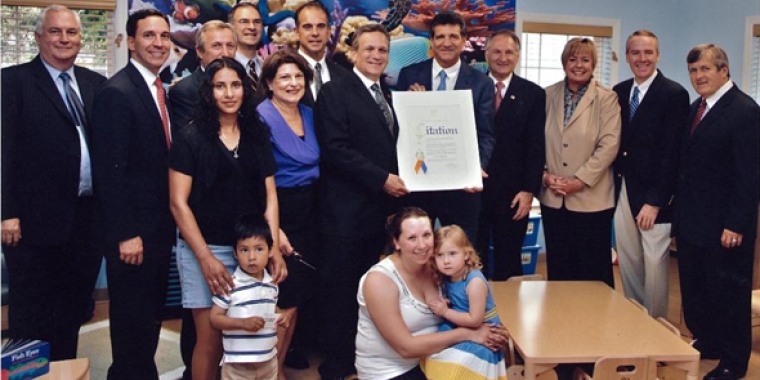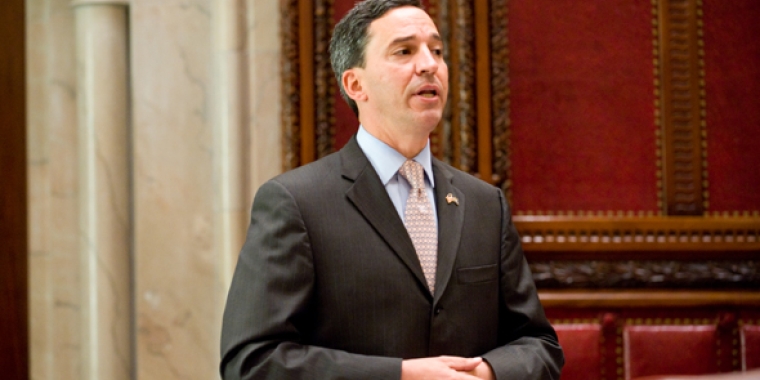From the Desk of Senator Jack M. Martins
Jack M. Martins
June 4, 2013
-
ISSUE:
- Local Government
- Campaign Finance
-
COMMITTEE:
- Local Government
The Wee Small Hours of the Morning
This past week, my office received a phone call at 1:23 a.m. from an organizer at MoveOn.org who threatened to oust me from office unless I embrace a bill calling for taxpayer funding of political campaigns. The call came as no surprise as people who call empty offices in the dead of night have no real intention of entering into meaningful discussion.
So I’ll share my position here. To be clear, I consider taxpayer financed political campaigns to be one of the most blatant exploitations of hard-working New Yorkers I have come across. Proponents claim it cleans up elections by taking money out of the game. It doesn’t. It merely substitutes your tax dollars for private donations.
Under the proposed system, politicians would suck up approximately $250 million to fund their election campaigns, and the operative word is “approximately” because the figure would most certainly be more. If it passes, your money would be used to blast out negative television ads, interrupt dinners with robo-calls, and stuff mailboxes with junk – all the things you love so much about politics.
While I understand that this is the nature of politics, I don’t see why taxpayers should pay for it. At a time when we’re struggling to fund worthy programs, why would we consider funding political campaigns on taxpayers’ backs? Since we can’t spend the same dollar twice, spending $250 million on political campaigns comes at the expense of things like additional school aid, getting people back to work with new infrastructure projects, and restoring programs for the developmentally disabled.
And most New Yorkers agree. An April 17th Quinnipiac poll showed that the majority of voters strongly oppose the idea and that by a 55 percent to 35 percent margin, New Yorkers don’t believe taxpayer financing of campaigns will help reduce political corruption.
One need only read the papers to see that it breeds more fraud than it cures. In New York City, politicians receive a whopping $6 in taxpayer funds for every $1 they raise! Over the years, dozens of candidates have brazenly gamed the system to cover absurd personal expenses that have nothing to do with campaigning. It’s happening even now. One NYC mayoral candidate set up straw donors to illegally make false donations and jack up his public financing. Another tried to bribe his way on to a party ticket, not because he wanted to win the election, but to get his hands on millions of “free” taxpayer dollars that he could then distribute to his crony “consultants and advisers.”
The Center for Competitive Politics cited the system as the worst in the nation, saying, “The abuse of public funds is so severe and the record of corrupt practices and other misdeeds are so rampant, particularly in the City of New York, that such a system cannot possibly live up to the ‘clean’ moniker that has been assigned to it by proponents.”
Now, these same special interest groups want to extend this model to the entire state? No thanks. This plan has little to do with honest elections and everything to do with increasing their political influence.
Most notably, why should anyone be forced to fund a candidate with whom he or she disagrees politically, morally, ideologically, ethically or philosophically? Thomas Jefferson wrote, “To compel a man to furnish funds for the propagation of ideas he disbelieves and abhors is sinful and tyrannical.” I happen to agree. How responsive would candidates be to constituents when they can count on no-questions-asked financing to prop them up?
I appreciate the fervor of taxpayer-funded campaign advocates who want to better the system but in reality, this proposal passes the buck, transferring the risk of running for office to the taxpaying public. And that’s the last thing over-taxed New Yorkers need.
Share this Article or Press Release
Newsroom
Go to Newsroom
Senator Martins Congratulates Anna's House
June 23, 2011

Senate Passes Landmark 'Power NY' Legislation
June 23, 2011
